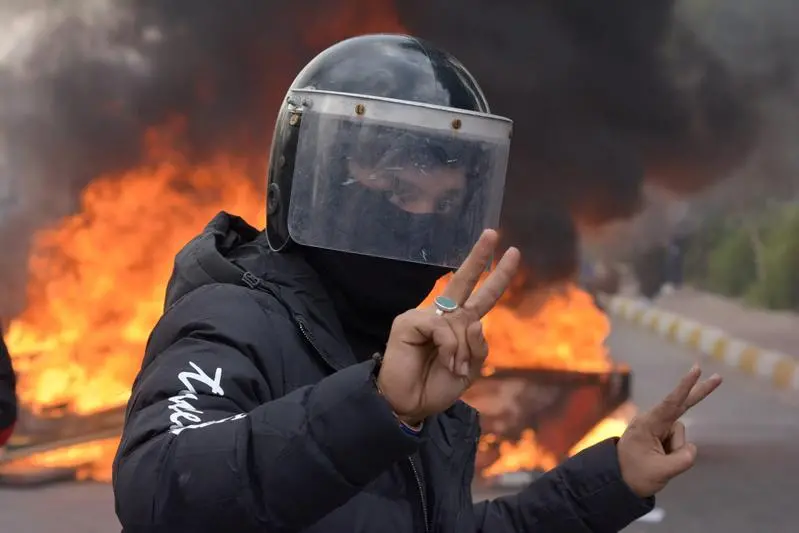PHOTO
Reflecting on the three major events in the Middle East — Iran, Iraq and Lebanon — we realize that they are more than trying to break free from failed regimes and miserable economic conditions. They also share homogeneity in intellectual identity, the profile of the individual and the society represented by the angry street protesters in Tehran, Basra and Beirut. They are young people who have risen against the formula of the political system, with its old features and practices, even in Iraq, which is led by relatively new institutions and regimes, but those in charge resemble their counterparts in Tehran and Beirut.
In addition to standing up against failure and corruption, this is a revolution with calls for greater social change than bread and employment. It is against religious extremism and in favor of social openness. It has a liberal spirit in keeping with the region’s modern variables. In Iran, about 60 million people under the age of 35 are unrelated to those in Qom and Tehran’s palaces. The same proportion and crisis can be found in Iraq and Lebanon.
There are overt hostile manifestations against the dominance of conservatives and clerics, even in two cities that depend spiritually and economically on religious benefits such as Karbala and Najaf. The demonstrations raised blunt slogans in their hostility to religious leaders. The images, voices and banners in all three countries attack the existing conservative situation because it is a boat for politicians and the rule of state entities. The result is that all these regimes have succeeded in religious domination but have failed to provide economic solutions for the country.
The regimes have deprived young people of their liberties, normal lives and the right to shape their future. Do those who demonstrate in Beirut know the size of the forces on the ground? Do those carrying pots fear those who hold guns? Perhaps not, or perhaps they do not care because they want to declare their desire for change. We also note that they have been too clever to fall for the foxes of the dominant forces, such as the presidency, Hezbollah and the beneficiaries of the status quo, who are trying to drag the angry to the pitfalls of treason, such as the weapons of the resistance, the legitimacy of the resistance or relationship with Israel. They avoided such pitfalls in order to prevent the regime’s guards from accusing them of treason and considering them the enemies of the nation who should be eliminated.
In Iran, they have gone far. The demonstrators rejected Ayatollah’s tutelage, the extreme limits of the rebellion in Iranian society, which all the young people had been taught to sanctify by the regime in order to ensure governance after the overthrow of the Shah. This is not quite Western democratic liberalism, but it has a great yearning for salvation, to topple the religious establishment that has crouched on the chests of 90 million people for forty years. The religious model in Iran and Iraq has failed. Even in Lebanon — where in the name of the crescent and the cross, politicians share the country’s resources from waste to oil — they have failed to serve their citizens.
Iran was a rich, radiant leader in the region under the Shah’s administration, but all that ended because of the power of the clerics, who insisted on ruling the country instead of mentoring and preaching the rulers. It was not enough for them to cultivate the tragedy in Iran; they had to spread it across borders and religions to neighboring Iraq. Modern political institutions there have become an easy passage for Iranian clerics, using parliaments and presidencies to influence and dominate civilian politicians.
And in Lebanon, sectarians have inherited the old French-Lebanese colony, where people of different cultures and temples yearn for salvation and change. The songs and melodies of the protesters have upset political leaders who do not know how to deal with this different situation. The protesters do not raise the flags of the US and Israel, they do not chant one sect against another, nor one leader against another.
We are witnessing intellectual changes, not just living changes. Inadequate institutions will fall if they do not adopt the project of the protesters and go with them on the same path. And if they do not do that, they will not survive in the long run, even if they survive this time.
- Abdulrahman Al-Rashed is a veteran columnist. He is the former general manager of Al Arabiya news channel, and former editor-in-chief of Asharq Al-Awsat. Twitter: @aalrashed
Copyright: Arab News © 2019 All rights reserved. Provided by SyndiGate Media Inc. (Syndigate.info).





















